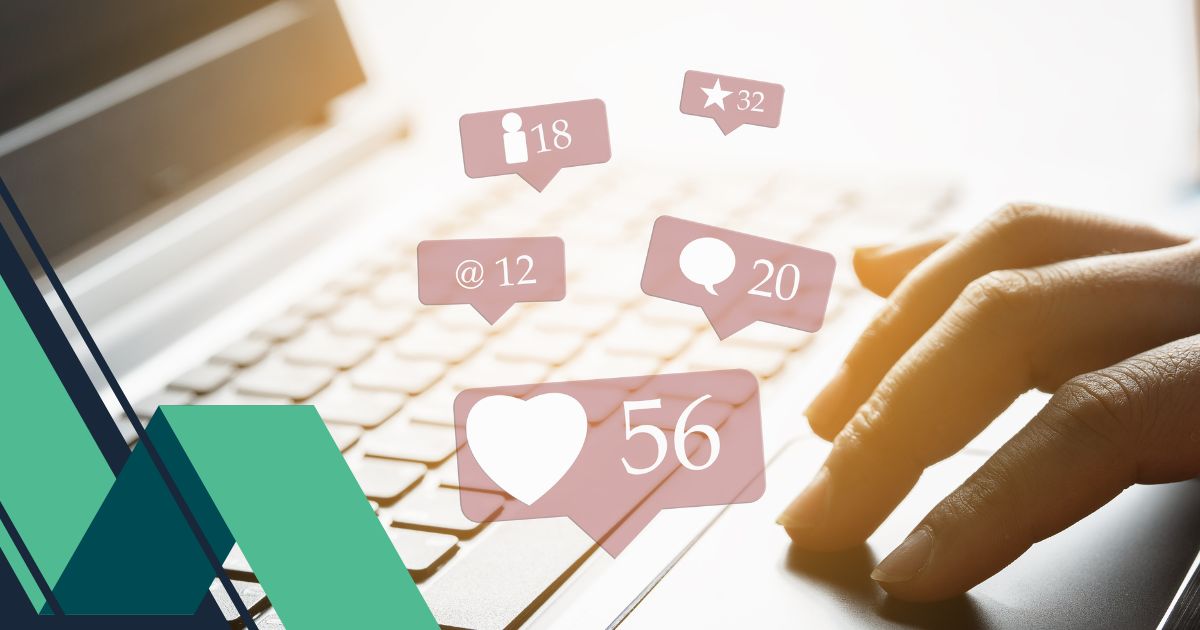Social media has grown rapidly in importance as a means of communication, information dissemination, and interpersonal bonding.
Social media is instrumental in the medical field. Doctors and other medical professionals can use social media to build meaningful patient relationships.
Healthcare practitioners can benefit from using social media to educate patients better, encourage preventative care, and increase patient satisfaction.
In this post, we’ll discuss how healthcare professionals can better engage with their patients online by using social media and how social media can improve patient care.
Healthcare Social Media Marketing
Using social media to communicate with patients and advertise services is an excellent strategy for the healthcare industry. Providers can connect with new patients, raise brand recognition, and position themselves as industry leaders using social media and professional networking sites like Facebook, Instagram, and LinkedIn.
However, to make the most of social media for healthcare marketing, service providers need to offer something of value to prospective patients in the form of exciting and informative material.
Providers can gain credibility and develop lasting relationships with their target audience by providing valuable advice, publishing relevant industry news, and advocating for health awareness initiatives.
Benefits of Using Social Media for Healthcare

Social media’s positive effects on healthcare extend far and wide. Providers may communicate with patients, disseminate helpful health information, and advocate for preventative care, all through social media.
Social media interaction between patients and their healthcare providers has increased patient happiness, built credibility as industry experts, and strengthened provider-patient bonds. Providers can expand their reach through social media and bring in new patients.
Furthermore, healthcare professionals can collaborate and exchange knowledge by using social media to communicate.
Risks and Challenges of Using Social Media Healthcare Marketing
There are many benefits to incorporating social media into healthcare, but there are some drawbacks to be aware of. HIPAA standards, which govern the privacy and security of patient information, are a major source of worry and must be strictly adhered to.
When interacting on social media, healthcare professionals must be mindful of patient confidentiality and verify that all posts comply with HIPAA regulations.
Problems may also arise when healthcare practitioners try to manage their online reputation, respond to negative comments or reviews, and maintain an active social media presence while providing quality patient care.
Best Practices for Social Media and Healthcare

It is becoming increasingly critical for healthcare providers to establish best practices to ensure that they use these platforms efficiently and responsibly as social media usage in healthcare continues to expand.
Compliance with legal criteria, such as HIPAA, respecting patient privacy, and providing relevant and informative patient content are all examples of best practices for using social media in healthcare.
Learn how to connect with patients, advertise your services, and position yourself as an authority in your industry by following along as we delve into the most effective uses of social media in healthcare today.
Publish Educational Content & Provide Accurate Information
Educating patients and giving them up-to-date information is crucial to social media’s role in the healthcare industry. As a result, people can make more educated healthcare decisions, and healthcare professionals will gain credibility as information sources.
Firms can use various media for educational purposes, from blog articles and infographics to films and podcasts.
Social media allows healthcare providers to reach a wider audience, encourage preventative care, and position themselves as experts in their industry.
Post Infographics for Increased Engagement
Infographics are a valuable resource for healthcare providers on social media because they simplify the presentation of complex health information.
Infographics posted on social media by healthcare professionals are an efficient way to reach their audiences and get their messages out. Infographics can convey information on the healthcare system, healthy lifestyle choices, and the prevalence of various diseases and disorders.
Respect Patient Privacy
Protecting patients’ confidentiality is one of the most important guidelines for using social media in healthcare. Medical professionals must keep patients’ private information private and avoid online disclosures at all costs.
Healthcare providers should never post patient names, images, or other identifiable information on social media to protect patient’s privacy. Healthcare practitioners also need patients’ written permission before posting information about a patient’s health or medical condition online.
Healthcare professionals can demonstrate their commitment to providing responsible and ethical care to their patients by placing a premium on protecting their confidentiality.
Maintain Professional Boundaries
A crucial step in healthcare social media best practice is to keep your personal and work lives separate. There is a risk of ethical violations and breaches of patient confidentiality if healthcare personnel have personal chats or relationships with patients on social media.
Remember that the Internet is a public forum; anything posted there can be viewed, read, copied, and reposted by anyone else. Keeping professional limits on social media is integral to providing ethical and responsible healthcare to patients and building trust.
Respond to Patient Inquiries Promptly
One of the most critical social media guidelines for healthcare providers is a rapid response to patient questions and feedback. Patients increasingly use social media to discuss their healthcare experiences, including sharing their questions, concerns, and criticism.
Providers who answer questions quickly and expertly are more likely to earn their patients’ trust and gratitude. Organizations in the healthcare industry should keep an eye on social media, respond promptly to inquiries, and politely address any complaints or issues that may arise.
Monitor Social Media Activity

We recommend that healthcare providers who use social media monitor their patients’ online conversations.
A healthcare organization using social media channels should constantly monitor for mentions of the organization’s brand or physicians, as well as patient comments and feedback. Healthcare practitioners can protect patient confidentiality by monitoring social media for any signs of problems or complaints.
Social media monitoring technologies allow providers to monitor patient behavior patterns, which may help shape marketing initiatives and boost participation rates.
Foster Engagement and Community Building
One of healthcare providers’ most critical social media guidelines is encouraging participation and group formation. Providers can utilize social media to promote patient involvement in their care and foster community among their patients.
Healthcare practitioners can build an active and engaged online community by disseminating helpful information, encouraging patient participation, and immediately addressing questions and concerns.
Providers can also use social media to publicize events, educate patients, and showcase patient success stories and testimonials.
Harness the Power of Health-Related Hashtags
Utilizing trending health-related hashtags is a social media best practice for the healthcare industry.
Healthcare providers can increase their social media presence and gain new followers by using trending and widely-used hashtags linked to medicine. By using hashtags, providers can expand their reach and engage with patients interested in particular health subjects.
Healthcare professionals can also use hashtags to join in on discussions and interact with patients who are tweeting about their experiences in the healthcare system.
Evaluate the Impact of Social Media

Providers or their healthcare social media agencies should review social media analytics frequently to monitor the efficacy of their social media efforts and determine how they influence patient engagement and satisfaction.
Providers can learn much about their patients’ habits and preferences via analytics systems that track reach, engagement, and sentiment.
To supply the best care for their patients, healthcare practitioners should constantly assess the results of their social media efforts.
The Role of Social Media in Healthcare
The use and implication of social media are on the rise in the medical field because it gives doctors and nurses a new way to communicate with their patients and encourages better health.
Providers in the healthcare industry can utilize social media to educate patients on various health topics, disseminate useful resources, incentivize positive lifestyle choices, and boost patient participation.
Social media has become integral to contemporary healthcare since it allows doctors to communicate more efficiently with their patients, increase health literacy, and improve the quality of treatment they deliver.
Educating the Public
Healthcare practitioners are responsible for educating the public, and social media is an excellent tool. Using platforms like Twitter and Facebook, medical professionals may spread awareness about the value of preventative care.
In addition to providing health education and tools, providers can disseminate the latest information on healthcare policy and developing health challenges. Healthcare professionals can improve health literacy and motivate patients to participate in their care by spreading information about it through social media.
Helping Patients Feel More Comfortable
Healthcare providers are responsible for making their patients as comfortable as possible, which they may accomplish with the help of social media.
Providers in the healthcare industry can utilize social media to spread the word about patient-centered care by publishing patient testimonials and sharing success stories.
Patients can feel more at ease with their care when providers use social media to give them a view of the inner workings of the office and the people who work there.
Making Yourself a Staple in the Community
One of the best things about medical social media marketing is the opportunity to establish yourself as a community fixture.
Healthcare providers may connect with their communities, disseminate important information, and advertise their services through social media. Social media allows providers to connect with patients and community groups, learn about and share in local health events and projects, and share about the positive outcomes of their practices.
Healthcare providers can reach more people and build their reputations as reliable resources by becoming established in their communities by working with reliable social media healthcare marketing company like iMedPages.





